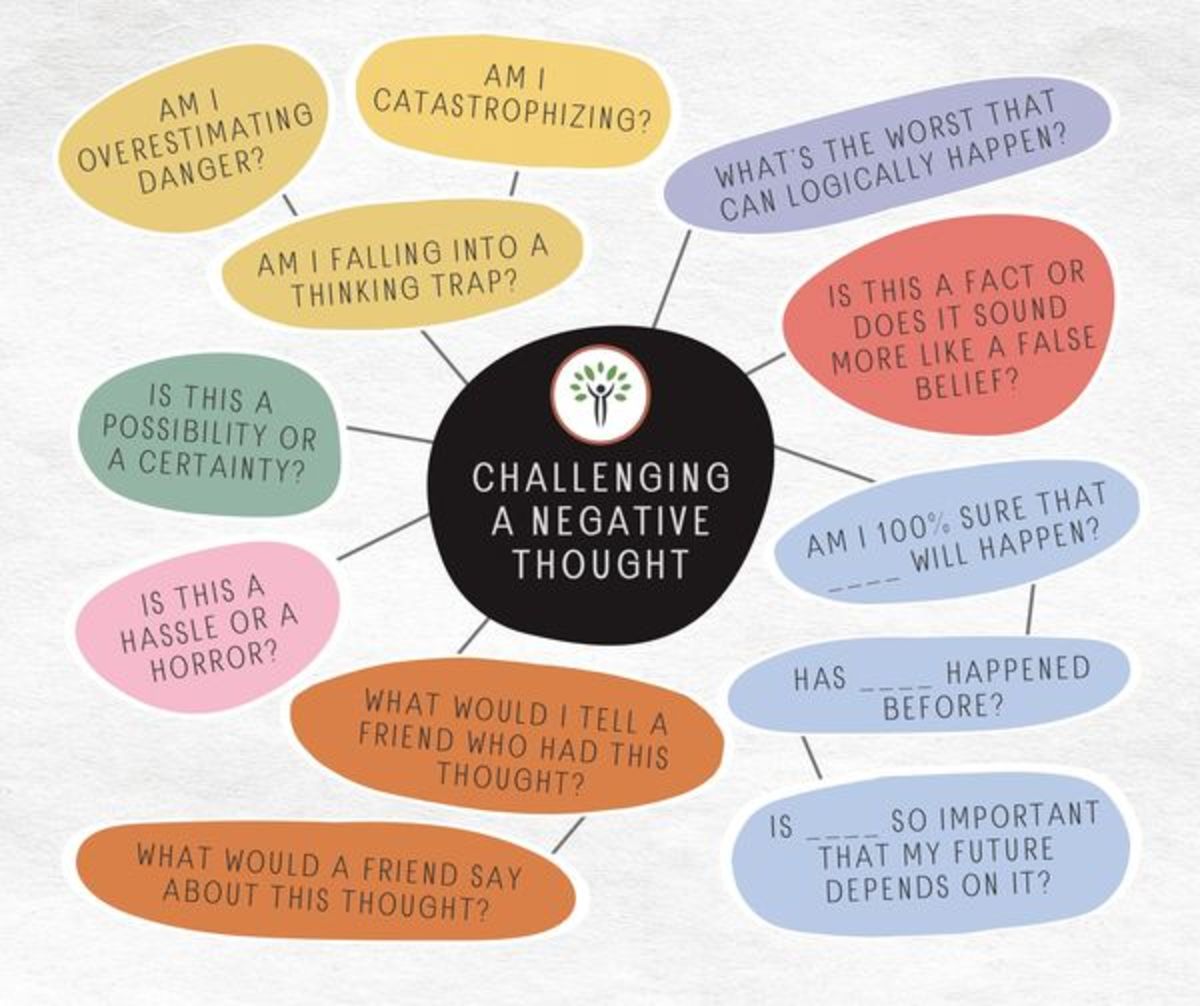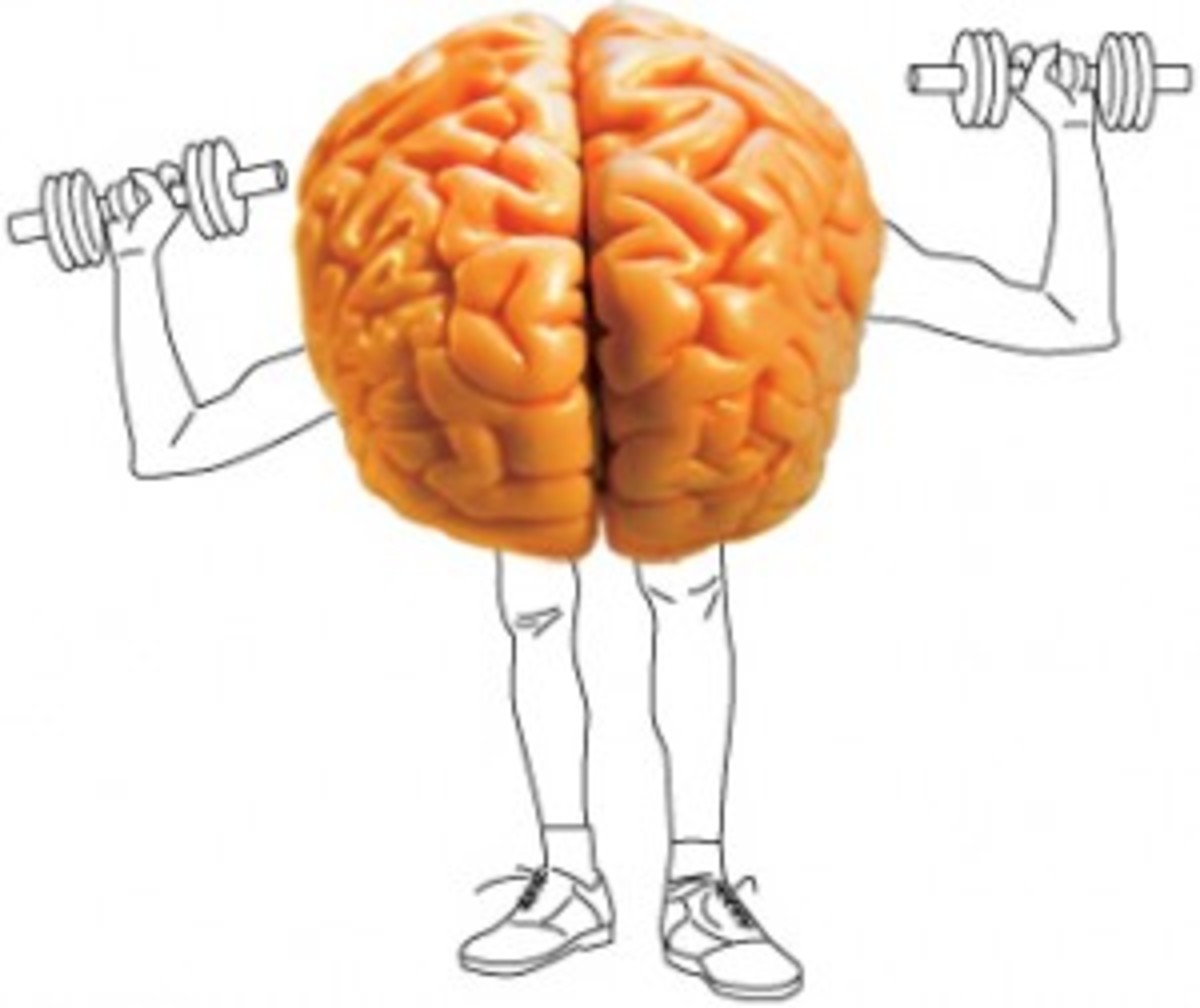Think Your Way Out of Anxiety and Depression

Stinkin' Thinkin'
Anxiety and depression are commonly identified as negative emotions, but the feeling of anxiety and depression is actually the end result of a process. For those who live with anxiety and depression on a daily and life long basis, as opposed to those who only have occasional moments or a day of these disturbing feelings, anxiety and depression are a constant companion that can profoundly disrupt their lives. Discovering tools and skills to manage anxiety and depression is essential to overcoming the debilitating effects.
While some individuals suffer only one or the other, some others may suffer from both anxiety and depression. It is likely that the same brain chemicals and brain centers are at play in anxiety and depression, but each person has their own 'profile' of resulting symptoms. There may be, in fact, many versions, levels, and types of depression and anxiety beyond the simple classifications that counselors and psychologists currently make for these disorders. One indication that this is true is that not every medication for anxiety and depression works for every person; what works well at a certain dose for one may not work at all for the other person.
Medication for those suffering from anxiety and depression is a central key to management and recovery, but medication is not likely the only thing needed to overcome these disorders. There are clear steps and techniques that can be used to help the medication to work to the fullest capacity. Understanding that the lack of certain chemicals in the brain (namely norepinephrine and serotonin) create anxiety and depression, the question becomes: 'what is the effect of the lack of those chemicals'? The answer is that there is a distinct alteration in how the individual may be thinking. To borrow a phrase from Alcoholics Anonymous, this might be called 'stinkin' thinkin'.
How we think and what we think about has a profound effect on our emotions. We often take this so much for granted as to miss how incredible and pervasive this connection is. It is not uncommon for people to consider themselves either an 'optimist' or a 'pessimist'. These, of course, are two different ways of viewing or thinking about the world. The optimist has thoughts that are dominantly positive, while the pessimist's thoughts are primarily negative. If you can change your negative, pessimistic thoughts to positive optimistic thoughts, you have a good chance of changing how you feel. Those who live with anxiety and depression tend to die-hard pessimists.
This is not a 'Polly-Anna' approach; this is not to say this is as simple as 'thinking happy thoughts'. Rather, there is a need for a self discipline that consistently challenges anxious and depressed thoughts. The first challenge is to discern the source of the negative thinking at hand. There are, of course, things and situations in our life that cause us to become anxious, but on the other hand, there is anxiety and depression that is sourced entirely in that lack of certain brain chemicals that induce feelings of anxiety or depression. Knowing which is which becomes important. The former usually requires us to do something practical, like ease our anxiety about paying a bill by actually paying it on time, or getting rid of our blues by going out and exercising with a friend. The latter, anxiety and depression sourced in brain chemistry, is the one that requires us to carefully consider and and examine the negative thoughts to see if they are based in reality.
Anxious and depressed thoughts quite often are exaggerated and tend to 'chain' together, escalating in intensity and elaboration. Exaggeration of thought is 'making a mountain out of a mole-hill' and chaining thoughts are piling up more and more negative thoughts until breaking a shoelace ends with thoughts of being either worthless (depression), or that something terrible is surely going to happen (anxiety). So the second challenge is to know and accept that when this happens, it is a sign of anxiety or depression disorder getting out of control. Applying self discipline to directly challenge these thought processes is needed to stop them in their tracks, or at least reel them in a bit.
The third challenge is to replace the unrealistic and negative thoughts with ones that are more realistic and positive. This too takes a good bit of self discipline, because the original negativity that produced the anxiety or depression (or for some, both) has already stirred up the emotional state that makes such positive thinking very difficult. For many, it can be helpful to actually begin to talk positively to themselves (yes, talk to yourself inside your head, not out loud!). You can literally tell yourself that the way that your are thinking is creating your bad feeling, and that the thoughts are not clear or accurate. You can then focus on correcting your thinking and bringing it back into reality. If the feelings of anxiety and depression rise, it is also helpful to tell yourself the the feeling will pass once you get your thinking in order.
To best manage anxiety and depression disorders, and to make best use of medication, challenge your 'stinkin' thinkin'!
- Home - W.E. Krill, Jr. M.S.P.C.
Welcome to the professional website of W. E. Krill, Jr. M.S.P.C. Bill is an experienced counselor with children, teens, families, adults, and couples. He specializes in treating children and adults who have PTSD as a result of interpersonal trauma.








